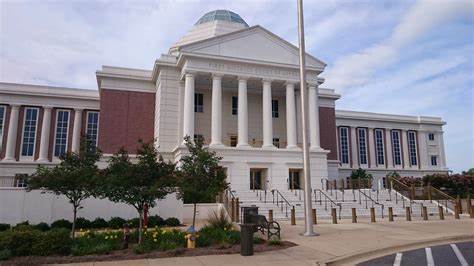By Jim Turner, The News Service of Florida
TALLAHASSEE — An appeals court Monday declined to take up a fight stemming from a “financial impact statement” that will appear on the November ballot with a proposed constitutional amendment on abortion rights, saying the case is moot because the statement was revised last week.
A three-judge panel of the 1st District Court of Appeal, however, raised the possibility that Floridians Protecting Freedom, a political committee sponsoring the proposed constitutional amendment, could launch a new legal challenge to the revised statement — and that the state could reiterate its arguments that a circuit judge doesn’t have authority to decide such cases.
“To the extent that appellees (Floridians Protecting Freedom) may wish to raise new claims about the revised financial impact statement, they may do so in a separate proceeding,” said Monday’s ruling shared by Judges Stephanie Ray, Ross Bilbrey and Susan Kelsey. “Appellants (state officials) can again raise their arguments concerning the circuit court’s lack of jurisdiction in a case where there is an actual controversy presented.”
In briefs filed last week, lawyers for Floridians Protecting Freedom and the state argued the appeal was not moot. Floridians Protecting Freedom also made clear it will challenge the revised statement, which it contends is politicized and inaccurate.
“For its part, the sponsor is committed to taking every legal action available to it, including filing a new lawsuit if necessary, to vindicate its legal right to a clear and unambiguous presentation of its amendment on the ballot,” the Floridians Protecting Freedom brief said.
Financial impact statements, which usually receive little attention, provide estimated effects of proposed constitutional amendments on government revenues and the state budget. But the abortion impact statement has become embroiled in controversy as Floridians Protecting Freedom seeks to pass an amendment that would enshrine abortion rights in the state Constitution.
A group of economists known as the Financial Impact Estimating Conference released an initial statement for the proposed amendment in November 2023. But on April 1, the Florida Supreme Court issued a ruling that allowed a six-week abortion limit to take effect.
Floridians Protecting Freedom filed a lawsuit in April arguing that the November financial-impact statement needed to be revised because it was outdated after the Supreme Court ruling. Leon County Circuit Judge John Cooper agreed and ordered the Financial Impact Estimating Conference to draft a new version.
State lawyers appealed, arguing that Cooper did not have legal authority to issue such an order. Amid the appeal, however, legislative leaders directed the Financial Impact Estimating Conference to revamp the statement.
The conference finished revisions last week, but the new version drew heavy criticism from Floridians Protecting Freedom. Conference members representing Gov. Ron DeSantis and the Florida House engineered the changes. DeSantis and other state Republican leaders oppose the amendment.
After the revisions, the Tallahassee-based appeals court directed both sides to file briefs about whether the appeal stemming from the original version was moot. The court Monday said it declined to “exercise our jurisdiction to decide a moot question. This appeal is therefore dismissed.”
The dismissal, however, does not resolve the question about whether Cooper has the authority to review and order revisions to financial impact statements.
In their brief last week, the state’s lawyers argued the case was not moot because the legal questions about Cooper’s authority were likely to recur — including in a challenge by Floridians Protecting Freedom to the revamped statement.
“Here, it is a virtual certainty that the issue of the circuit court’s authority will recur,” the brief said. “The (amendment) sponsor has already made clear it believes the revised statement ‘remains in violation of Florida law’ and has vowed to challenge it as soon as this (appeals) court permits the sponsor to do so. And although the question need not be one that is likely to recur between the same parties, that is no doubt true here.”
The proposed constitutional amendment will appear on the ballot as Amendment 4. It says, in part, that no “law shall prohibit, penalize, delay, or restrict abortion before viability or when necessary to protect the patient’s health, as determined by the patient’s healthcare provider.”
In part, the revised financial impact statement says there is “uncertainty about whether the amendment will require the state to subsidize abortions with public funds. Litigation to resolve those and other uncertainties will result in additional costs to the state government and state courts that will negatively impact the state budget. An increase in abortions may negatively affect the growth of state and local revenues over time. Because the fiscal impact of increased abortions on state and local revenues and costs cannot be estimated with precision, the total impact of the proposed amendment is indeterminate.”

